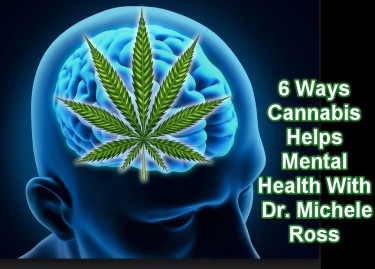
Should Cannabis Products Have Mental Health Warnings On Packaging?
In recent years, high-THC cannabis has drawn the attention of medical professionals and parents alike — but not in a positive way.
An increased incidence of cases of schizophrenia and psychosis related to the use of high-THC cannabis has been noted, particularly among adolescents. On the other hand, for recreational users and other types of medical marijuana patients (including those struggling with major depression, treatment-resistant post-traumatic stress disorder, cancer and many more), the recent development of extremely potent cannabis – sometimes in concentrates up to Reaching 95% THC was nothing but good news. Sure, people say that the choices we have today are definitely not your grandparents’ weed.
Thanks to developments in genetics, we now have a wide range of THC products to choose from. These range from 0.3% THC all the way up to the high 90s. And these types of products are available in pharmacies across the country wherever they have been legalized for adult use, medical use, or both.
Cannabis is safe, but has never been touted as a panacea
A quick glance at any search engine will show you a multitude of conducted clinical studies demonstrating the effectiveness and safety of cannabis in treating a long list of mental and physical health disorders. Great emphasis has also been placed on its effectiveness in treating mental health issues, a serious medical issue that the industry has struggled to treat effectively and accurately.
According to the National Alliance on Mental Health, untreated mental health disorders cost the United States approximately $300 billion annually in lost productivity. Additionally, mental illness and substance use disorders are often co-occurring issues, with many of those struggling with mental health disorders turning to dangerous antidepressant medications that can easily be overdosed. This leads to an (avoidable) increase in the death toll. People with untreated mental disorders, particularly the more severe forms such as psychosis and schizophrenia, tend to self-medicate, which is why they often struggle with substance use disorders.
The real problem here is the absurdly high cost of mental health care in the country. Being able to afford a therapist or psychiatrist is something only the rich have, while very few have access to programs designed to help the impoverished. I mean – the average fee for therapists and psychiatrists starts at a minimum of $100 up to $300 PER APPOINTMENT. Can we take care of this fact? And someone with serious mental health problems would need several of these sessions throughout the year, maybe even several a month, just to get better.
No wonder people treat themselves.
And with increasing access to marijuana thanks to legalization, people are self-medicating. And we see results that are unfortunate.
“Studies have shown that potent cannabis is associated with a higher likelihood of psychosis, depression, anxiety and cannabis addiction, but these studies were unable to account for people’s early mental health symptoms and had not always considered whether the risks of high-potency use exceeded the risks of daily cannabis use,” according to a 2020 study by JAMA Psychiatry.
So, while a vast majority of the population is enjoying tremendous relief from conditions where drugs have failed to help them, or because they simply don’t want to use synthetic drugs, there is a growing minority of cases who are sounding the alarm about the ready availability of high-dose cannabis THC levels, especially in those prone to psychosis and schizophrenia.
Cannabis advocates, even medical professionals who support the drug’s use, have never said that this wonderfully healing plant should be viewed as a panacea.
There are certainly situations where patients need to learn not to self-medicate, just as they might exercise restraint to ensure they are on the correct dosage for prescription drugs, or not mix it with alcohol for fun.
Data shows that cannabis is generally safe and well tolerated
In numerous studies showing the effectiveness of cannabis for treating a variety of conditions, patients report that it is usually well tolerated.
Sure, cannabis has some known and common side effects. These can include paranoia, anxiety, dry mouth, red eyes, and elation — so much so that you become too disabled to drive. These are simply part of the psychoactive effects of cannabis, and science tells us that because everyone has such unique biochemistry, we will all respond to cannabis in different ways.
However, you must also remember that cannabis is recognized as one of the safest recreational drugs in the world, despite these minor side effects that people may experience while taking it. Magic mushrooms ranked the safest, followed closely by cannabis in second place.
Also, you would have to use a ridiculously large amount of marijuana in a short amount of time to even overdose. To date, there has not been a single case of a marijuana overdose. Yes, it’s possible to ingest such a high amount of THC that you would feel disconnected from reality—but that would wear off in a few hours.
And yes, people with cardiovascular problems should avoid taking THC-rich substances. This also applies to people with severe mental disorders, people who drive, people with asthma and a few more. It’s not for everyone, but it certainly helps a significant percentage of the human population live healthier and better lives.
Conclusion
To end this article, I think cannabis should indeed have mental health warnings. As someone who believes that consumers should be armed with all sorts of information when it comes to making a decision about their own wellbeing, I think cannabis products, especially those with over 10mg THC, should indeed have warning labels – also that we regulate tobacco products.
If what is needed to increase access, awareness and education about marijuana means moving in the right direction toward more widespread legalization, then surely it is in everyone’s best interest.
CANNABIS AND MENTAL HEALTH, READ MORE…

CANNABIS FOR MENTAL HEALTH, A SITDOWN WITH DR. ROSS!

Post a comment: